Current Projects
Country: Kenya
Showing 1 - 25 of 34
34 results found
Reduce the use and prevalence of harmful agrochemicals by supporting farmers to access finance, innovative practices, and markets required to incentivize sustainable practices.
To leverage the conservation caucus model to increase the sustainability of funding for protected areas systems.
To fast-track readiness and early actions to implement the post-2020 Global Biodiversity Framework by providing financial and technical support to GEF-eligible Parties to the Convention on Biological Diversity (CBD) in their work to review and align their national targets, NBSAPs, policy frameworks, monitoring frameworks and finance with the Global Biodiversity Framework
To enhance national-level institutional and technical capacities for the 2021-2022 UNCCD reporting process in the context of the UNCCD Strategic Framework 2018-2030 and SDG15.3
Facilitate the implementation of the Stockholm Convention in participating countries through the development, review and update of the NIPs and submission to the Conference of the Parties (COP) of the Convention
To assist GEF-Eligible Parties to the Cartagena Protocol on Biosafety to prepare and submit their Fourth National Reports on measures that each Party has taken to implement the Cartagena Protocol on Biosafety
To facilitate access to GEF funding by 52 countries for Enabling Activities to meet their obligations under the UNCCD a) alignment of NAPs with 10 – Year Strategy and b) Reporting and Review process
To enable country Parties to collect necessary biophysical, socioeconomic data, establish sound reporting and monitoring systems at national level and report against the UNCCD Strategy
To strengthen integrated natural resource management and restoration of degraded landscapes in the Tana Delta, and systemically scale up best practices and lessons learned to other priority landscapes in Kenya
Project Objective: To support thirteen (13) developing countries prepare and submit National Communications (NCs) and Biennial Update Reports (BURs) that comply with the United Nations Framework Convention on Climate Change (UNFCCC) reporting requirements while responding to national development goals
Project Objective: Financial resources for the ASGM sector are secured to transition to mercury-free mining techniques
The utilization of microbial genetic resources within the protected Kenyan Soda lakes for research,development and commercialization of industrial enzymes and bioâ€pesticides for improved resource management andlivelihoods in compliance with the Nagoya Protocol on Access and Benefit Sharing
To provide financial and technical support to GEF-eligible Parties to the Convention on Biological Diversity (CBD) in their work to develop high quality, data driven sixth national reports (6NR) that will improve national decision-making processes for the implementation of NBSAPs; that report on progress towards achieving the Aichi Biodiversity Targets (ABTs) and inform both the fifth Global Biodiversity Outlook (GBO5) and the Global Biodiversity Strategy of 2021 – 2030.
Facilitate the development, transmission, access and use of data contained in National Implementation Plans (NIP, Article 7) and National Reports (Article 15)
To Assist GEF-Eligible Parties to the Nagoya Protocol on Access and Benefit Sharing to prepare and make timely submission of their Interim National Reports on measures that each party has taken to implement the Protocol in line with Article 29
Strengthening policies, laws, and criminal justice capacities to address poaching and illegal wildlife trade (IWT) in five target countries in Africa
To contribute to improved health and environment through strengthening national and regional institutions, and implementing priority chemicals and waste related interventions
Development of National Action Plans to reduce the use of mercury and mercury compounds in, and the emissions and releases to the environment of mercury from, artisanal and small-scale gold mining and processing is facilitated by the use of scientific and technical knowledge and tools by national stakeholders in participating countries.
The development objective is to promote the adoption and adaption of sustainable land and forest ecosystem management (SLEM) practices across the productive landscape of Kakamega-Nandi ecosystem
To Reduce Impacts From Land-Based Sources and Activities and Sustainably Manage Critical Coastal-Riverine Ecosytems Through the Implementation of the WIO-SAP Priorities with the Support of Partnerships at National and Regional Levels
To strengthen national capabilities for implementation and scaling up of evidence-based, innovative, diversified and environmentally sound disease vector control interventions (with special emphasis on malaria) with multi-stakeholder participation within context of IVM
To commercialize and transfer the SolarChill vaccine refrigerator (SolarChill A) and to begin the process ofcommercializing and transferring the SolarChill household and light commercial refrigerator (SolarChill B).
To Assist GEF-Eligible Parties to the Cartagena Protocol on Biosafety to prepare and make timely submission of their Third National Reports on measures that each party has taken to implement the Protocol in line with Article 33
To strengthen the capacity for implementation of the updated POPs Global Monitoring Plan (GMP) and to create the conditions for sustainable monitoring of POPs in the African Region
With the overarching goal of integrating CBD Obligations into National Planning Processes through Enabling Activities, the main objective of this project is to enable Kenya to revise its National Biodiversity Strategies and Action Plans (NBSAPs) and to develop the Fifth National Report to the CBD
Showing 1 - 25 of 34




